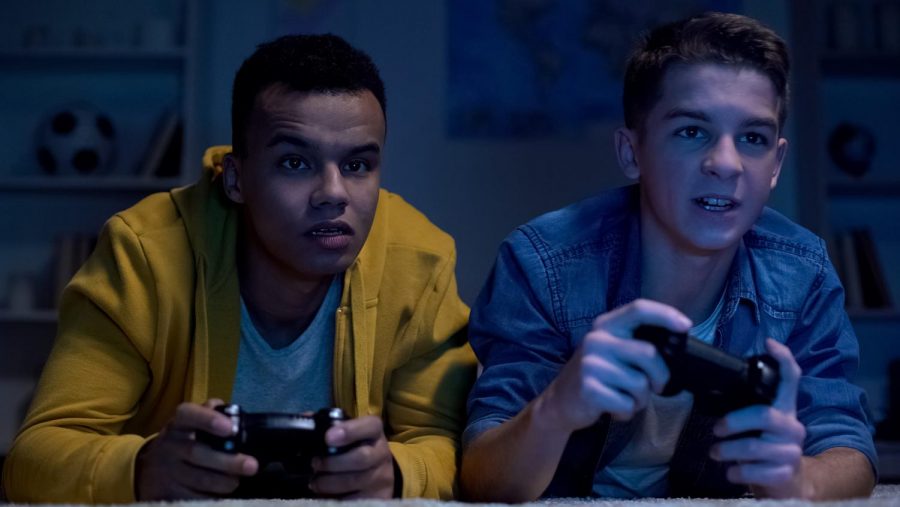Students engage in screen time overload during pandemic
Communications students found that binge-watching and overdoing social media and video games can have a negative impact on college students.
May 18, 2021
Screen Time
By Hannah Boring
Like college students everywhere, those at AACC felt some negative effects from overdoing their screen time during the pandemic.
For a research project in two sections of COM 101, Introduction to Mass Media, students found that their classmates binged on video games, social media, TV shows and movies.
“People kind of used social media as an outlet for human connection at a time when it was extremely limited,” first-year psychology student Caroline Johnston, who focused on social media obsession for her project, said.
Nationwide, social media use increased during the COVID-19 pandemic, first-year Johnston learned. She pointed to research showing a 10.5% increase in social media use last July compared with July 2019.
The overuse, she said, led to a social media addiction for some, or “an uncontrollable urge to log on or use social platforms.”
The pandemic also led to an increase in binge-watching, defined by most as back-to-back viewing of two or more episodes of a show. According to Jillian Samaniego, a first-year English student who studied binge-watching for the project, Americans generally increased their daily TV and movie time from four hours to six last summer.
“When you’re watching TV shows, it’s kind of imitating real-life conversation,” Samaniego said. Watching television causes an adrenaline rush, which can make viewers feel they are part of a real-life scenario, she said.
Similarly, 35% of video game players spent more time gaming during the pandemic than they did the year before, second-year finance student Marc Gildersleeve learned from his research.
Increasing gaming time is closely tied to addiction, said Gildersleeve, who frequently plays video games and focused on that topic for this project.
“Video games are designed and made to draw you in,” Gildersleeve said. “So, obviously just the combination of everyone being forced to stay home and quarantine [allowed for] more time to play more video games [and] become more addicted.”
The student researchers found that unplugging from all screens can help with mood, time management and even mental health.
“Sometimes you just need a break to be with yourself and your thoughts and just relax [and] chill out without a whole bunch of screens all the time,” McKenna Sparks, a first-year transfer studies student who researched the benefits of unplugging, said.
Throughout the pandemic, having fun and socializing weren’t the only reasons why students logged more screen time. First-year communications student Al Sundseth pointed out that college students have upped their screen time because of distance learning.
As a result, said Sundseth, whose project focused on unplugging, students have a greater need to plan time away from their screens than they did before the pandemic.
“A lot of the newer generations have become kind of codependent on electronic devices,” Sundseth said. “Eventually [screen time] will become the norm … but it is indeed very important to sometimes take a step back and look at how your time is being spent.”
Unplugging, according to Sundseth, is when someone tries to lessen the use of electronic devices.
“Unplugging should be done in a gradual manner,” Sundseth said. “Rather than thinking about how much time you want to spend away from screens, think about how much time you want to spend doing something else.”
As part of the project, journalism professor Sharon O’Malley asked the students to examine the increase in their own screen time.
“A lot of the students seemed shocked by their numbers,” she said. “But most of them admitted they’re not going to slow it down.













Jenny Depp • May 18, 2021 at 2:10 PM
You’re not the only one who has claimed that the pandemic has contributed to an increase in screen time and video game addiction. But I’m quite concerned that it’s too late and the trend is only going to increase from here. source: https://famemass.com/video-game-addiction-statistics/